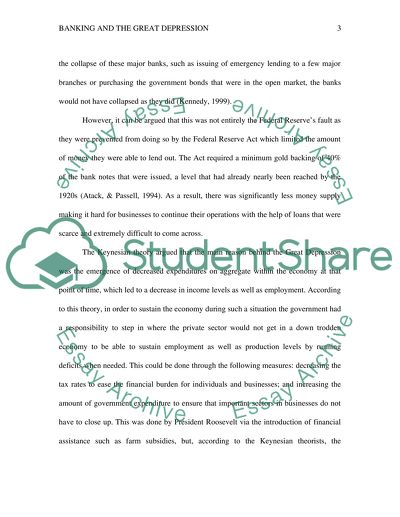How Banking affected the Depression Research Paper. Retrieved from https://studentshare.org/macro-microeconomics/1457556-how-banking-affected-the-depression
How Banking Affected the Depression Research Paper. https://studentshare.org/macro-microeconomics/1457556-how-banking-affected-the-depression.


